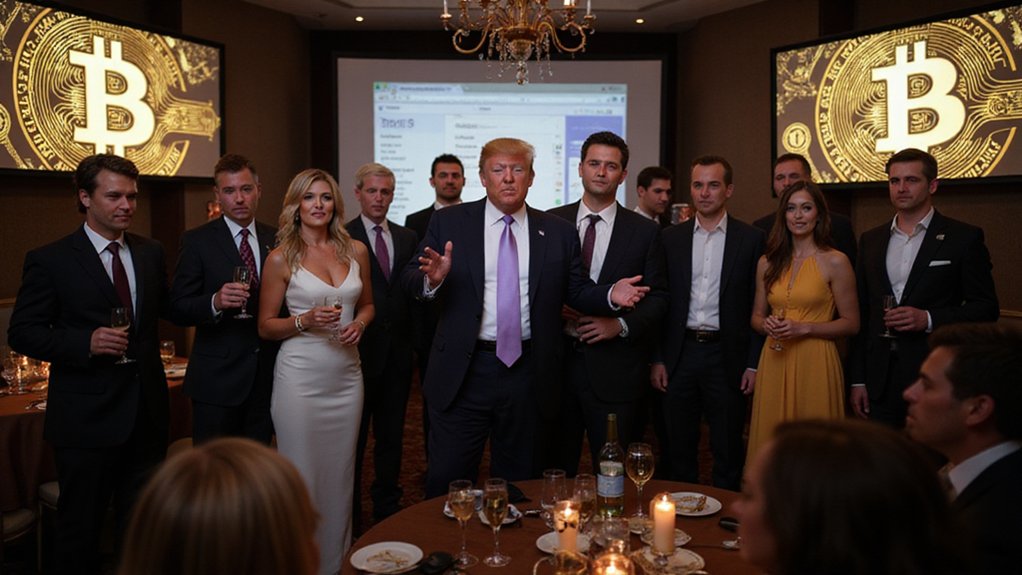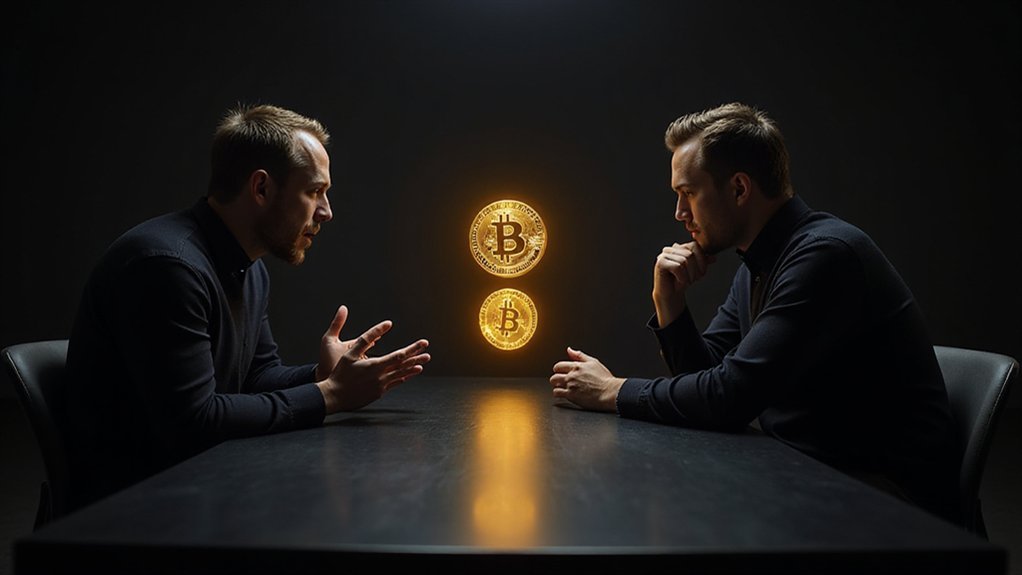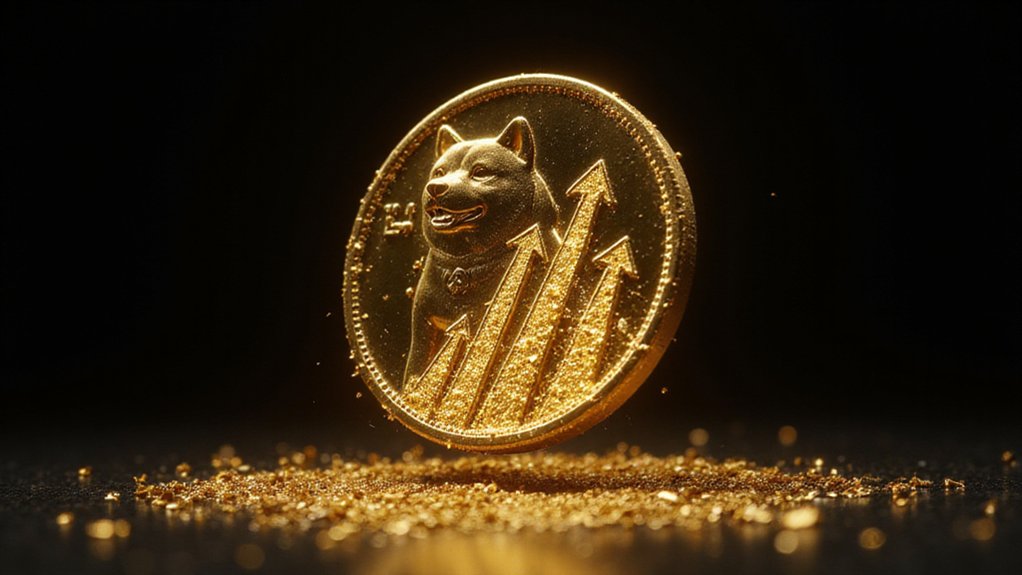How exactly does one transform digital currency speculation into political capital?
Former President Trump demonstrated a particularly audacious approach with his exclusive crypto gala held at his Virginia golf club on May 22, 2025—an event that merged political influence, cryptocurrency speculation, and celebrity culture into a single, ethically nebulous affair.
The gathering, touted by Trump himself as “the most exclusive invitation in the world,” assembled 220 of the top $TRUMP meme coin buyers, collectively representing an eye-watering $148 million in cryptocurrency investment.
Notable attendees included crypto luminaries Justin Sun and Evgeny Gaevoy, alongside celebrities such as former NBA star Lamar Odom—each leveraging their presence to enhance their own digital currency ventures while basking in proximity to political power.
Behind the glamorous façade, however, lay a more complex financial reality.
The glittering veneer of exclusivity barely concealed a calculated exercise in financial extraction masquerading as political access.
While the Trump family and backers have reportedly amassed over $300 million in transaction fees from the meme coin—whose value has oscillated wildly from a $75 peak to below $8—attendees found themselves confronting an event experience incongruent with their substantial investments.
The event coincided with unprecedented market interest in Bitcoin ETFs, which saw record inflows totaling over $1 billion in a single week as Bitcoin briefly surpassed $100,000.
Complaints about wedding hall-quality food and insufficient security measures proliferated, as did lamentations regarding limited access to Trump himself, who merely gave a quick speech before departing via helicopter.
The gala represents a masterclass in asymmetric value exchange: while investors hemorrhaged millions on a volatile digital token, the Trump enterprise secured substantial, tangible revenue streams with minimal capital outlay.
Such arrangements have predictably attracted regulatory scrutiny, particularly concerning the involvement of foreign investors in ventures connected to a former (and potentially future) president.
The event’s ethical implications have prompted 35 House Democrats led by Representatives Sean Casten and Adam Smith to demand an immediate DOJ investigation into potential violations of federal bribery laws and the Constitution’s Foreign Emoluments Clause.
Perhaps most remarkable is the event’s unapologetic fusion of cryptocurrency speculation—already notorious for its volatility—with political proximity, creating a novel marketplace where financial backing potentially translates to access and influence.
As the $TRUMP coin continues its price gyrations (experiencing a notable surge following the event announcement), one might reasonably wonder where exactly the boundaries lie between innovative campaign financing, celebrity endorsement economics, and outright commodification of political influence.¹
¹The answer, it seems, remains as volatile as the meme coin itself.







